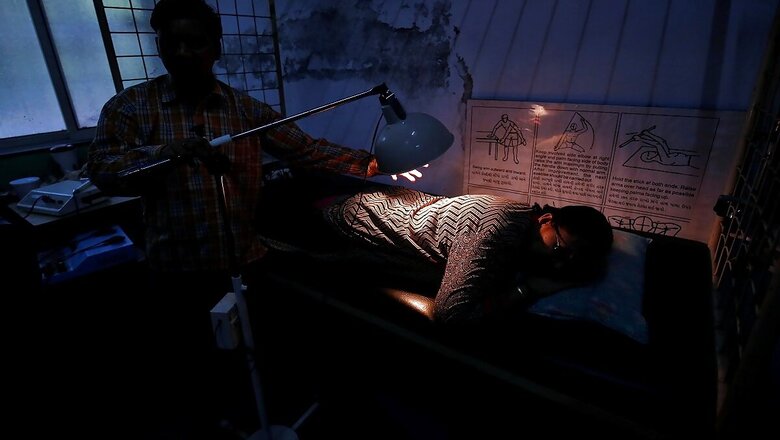
views
Eight years ago an engineering graduate met with an accident that rendered her a quadriplegic. That graduate is me. If you ask, I have no memory of the events that transpired after the accident until I got up one day in a hospital room with a host of doctors attending me.
I spent my days in the Intensive Care Unit for two months, contracted a major lung infection. But the biggest and life changing revelation came from my mother ‘The accident turned you neck down paralysed,’ she told me. My unconscious/semi-conscious state was flooded with thoughts about my life ahead – if it will be dependent on help and in this case, how much could I help myself now.
Mom said, ‘It will last only till you allow it to stop you.’ She was right. I did not stop myself despite the government apathy towards the 90% disabled or the “divyang”.
I am fortunate to have such a strong family and ability to not give up. But to engineer a society that understands diversity and inclusion of people who share my fate of being 90% disabled, we need more, for instance, there must be subsidies, opportunities and visibility in policies. We must exist in the mind of the legislatures, governments and service to us be not limited to fancy words alone.
As September 5 marked the ‘World Spinal cord injury day’, observed by International spinal cord society (ISCoS) for spreading awareness about those suffering from Spinal cord Injury (SCI), I want to share my story to sensitise the people and the government on the need for inclusion of the disabled population into the society.
Below I categorise the challenges of divyang through my own experiences.
Getting the WFH approved: Doctors had predicted that I might have to be on a ventilator and my tracheostomy, a medical procedure that involves creating an opening in the neck to place a tube into a person’s windpipe, would stay forever. But I came back to my house in Bangalore, getting rid of all that. I was back unaware of the challenges waiting for me. I came home to find the present situation to be a new challenge. The physiotherapy sessions had started. I was still in TCS with leave without pay for two years. With exercises, medical care and an extremely supportive family the two years went by.
Now it was time to join my work, but I had my challenges in going to the office and working on the desktop. So, I explained it to them and that I’d be able to ‘Work from home’. I told them how it was a very popular culture in foreign countries. However, they were not able to provide me with such an offer considering the client sensitivity principle. This was the time when I had to take an important step.
My father drafted a letter to higher officials, stating my exact condition and explaining all the hurdles. It worked and I got a positive response with mails to the resource management group to include me with my condition. I got the promise that TCS is with me, yet again. I got a project and am successfully working for it.
Today amid the COVID-19 pandemic, everyone is worried and complaining how difficult it is to ‘Work from Home’ though, I’ve mastered the art and have been doing the same for over two years.
Chasing Dreams with Cooperation: Another important decision was when I decided to go abroad for higher education. One of the criteria for my application was to appear for the International English Language Testing System (IELTS). Even after providing various documents from my doctor, my examination centre was allotted in Hyderabad. I visited the Bangalore airport with an army of my siblings only to realise that they were not equipped for such special cases. Then, I somehow boarded my flight and took off. Meanwhile, my brother-in-law tweeted about the poor condition at the Bangalore airport and guess what, the Hyderabad airport was so ready to receive me.
So if you don’t open your mouth, things will happen the way they are. They’d definitely change how you should address a physically challenged person, though. Anyway, I got selected for a course in Stockholm University. It is right now on hold due to Covid-19.
Finance and judiciary: No help is provided by the government to a 90% disabled person who is trying to include herself to the society. They just have fancy words like differently-abled and divyang, nothing beyond that. I work with my knuckles, pay all the taxes, pay my attender, but there’s nothing subsidised by the government. To add to this, the Indian judicial system can’t go uncommented. I’ve a case registered for my accident and it is going on for 8 years, I’m still waiting for the result.
Pressure Sores: I have grown with these difficulties as my partners in battle. The most severe one is pressure sores. We need to be extra careful about these. Since we are a quadriplegic/tetraplegic, paralysis of all four limbs, we don’t feel the pain, discomfort or irritation. Hence, the chances of having these increases.
Autonomic Dysreflexia: There is no medicine for this phenomenon, which can be seen as unexplained sweating, dangerous shaking of legs, bladder wall irritation due to blocked catheter, constipation, haemorrhoids etc. Bladder and bowel management takes a long time to get used to and get comfortable with any of these.
Emotional health: Even with the most supportive family, people tend to have insecurities and inferiority complexes. This usually happens because we form an image of ourselves and we definitely want to fall into it.
Medical Discrepancies: I would like to open up about the major issues that we faced, like ‘medical discrepancies’. The major challenge was the need of a nurse to help my parents in tackling my complex case. The nurses that we received were totally untrained to handle spinal cord injured people and even that poor quality cost sky-high. My requirements included changing my position every two hours to avoid pressure sores, arranging my workstation as per my ease but the inefficient help failed to help.
Accessibility: This is an issue that has hindered my inclusion in society. I remember when we bought this house and the registration was to be completed in the Bangalore government office, I visited the office to find around 20 stairs and no other way to enter. We had to call people to lift me with my wheelchair to complete my basic task. In another event, when my office team was throwing a party to celebrate the success of our project, I was invited but could not go as the venue didn’t have ramps or lifts. Also, the roads are so narrow and broken that it is difficult to go outside.
To conclude, today when I look back, I realise that doing all of it would have been difficult if there was no financial stability. I wonder how difficult it would be for people who don’t have such a supportive family or have financial hurdles.
The government must provide help in the form of finance, employment and medical subsidies. It is not only about giving fancy names.











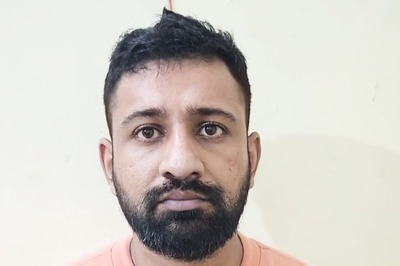

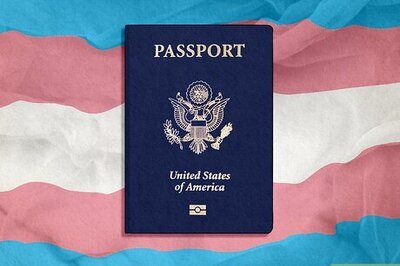

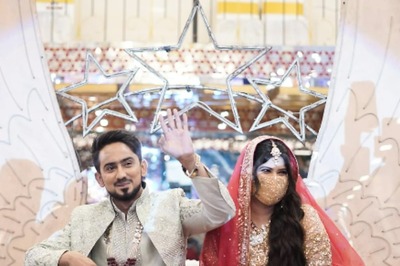

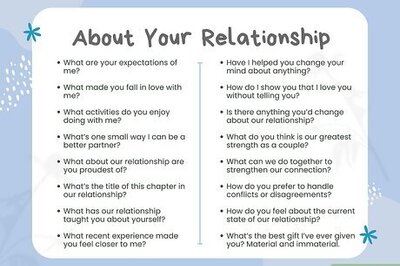
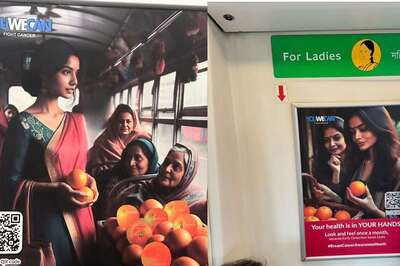
Comments
0 comment